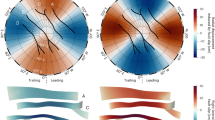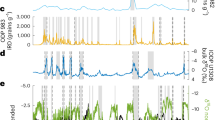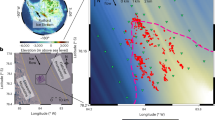Abstract
AT the Editor's request I contribute a few remarks Mr. Brooks's letter. The suggestion that tidal friction might be a cause of changes in the distribution of land and water is not new. It will be found a “Note” in NATURE of April 25, 1889 (vol. xxxix., 613), where it is attributed to M. A. Blytt; and that may not be its first appearance. The character the changes is that indicated by Mr. Brooks, but the mechanism by which they are effected is a little different. The hypothesis of a crust riding more or less freely on a nucleus is unnecessary, and difficult reconcile with well-established results. Again, the frictional stresses do not operate directly to cause a flow of material towards or away from the poles, hut indirectly by diminishing the speed of rotation.
This is a preview of subscription content, access via your institution
Access options
Subscribe to this journal
Receive 51 print issues and online access
$199.00 per year
only $3.90 per issue
Buy this article
- Purchase on Springer Link
- Instant access to full article PDF
Prices may be subject to local taxes which are calculated during checkout
Similar content being viewed by others
Rights and permissions
About this article
Cite this article
LOVE, A. Tidal Friction and Ice Ages. Nature 94, 254–255 (1914). https://doi.org/10.1038/094254b0
Issue Date:
DOI: https://doi.org/10.1038/094254b0
Comments
By submitting a comment you agree to abide by our Terms and Community Guidelines. If you find something abusive or that does not comply with our terms or guidelines please flag it as inappropriate.



